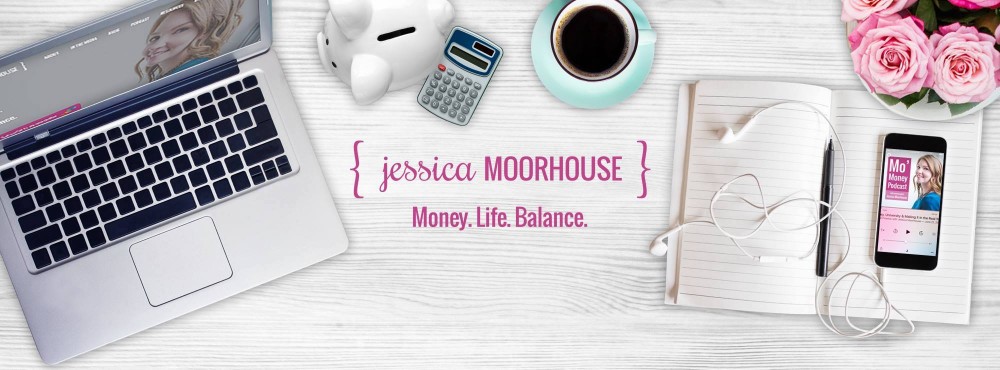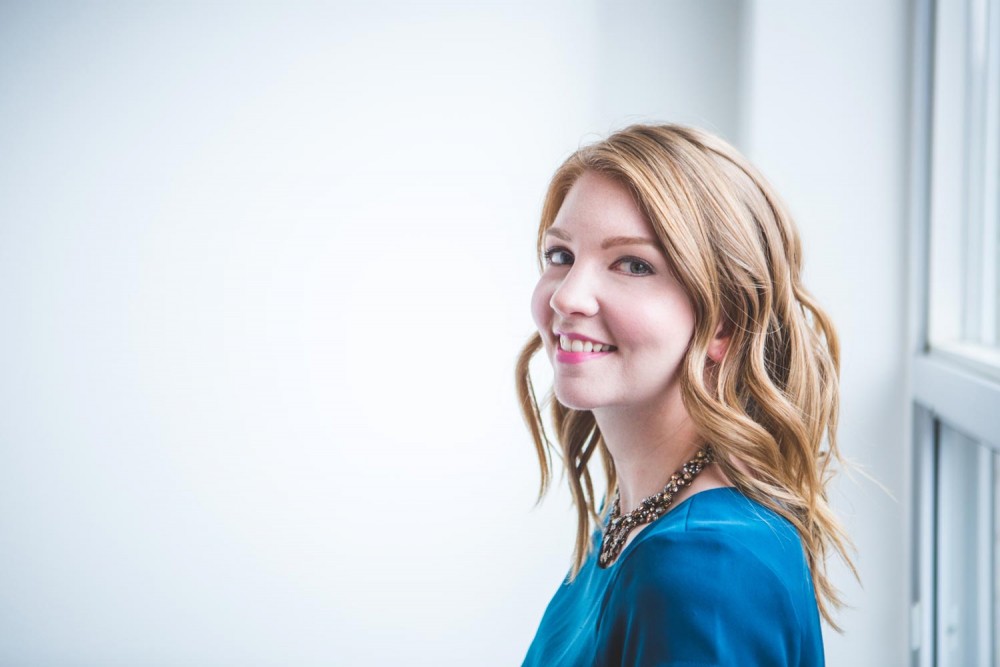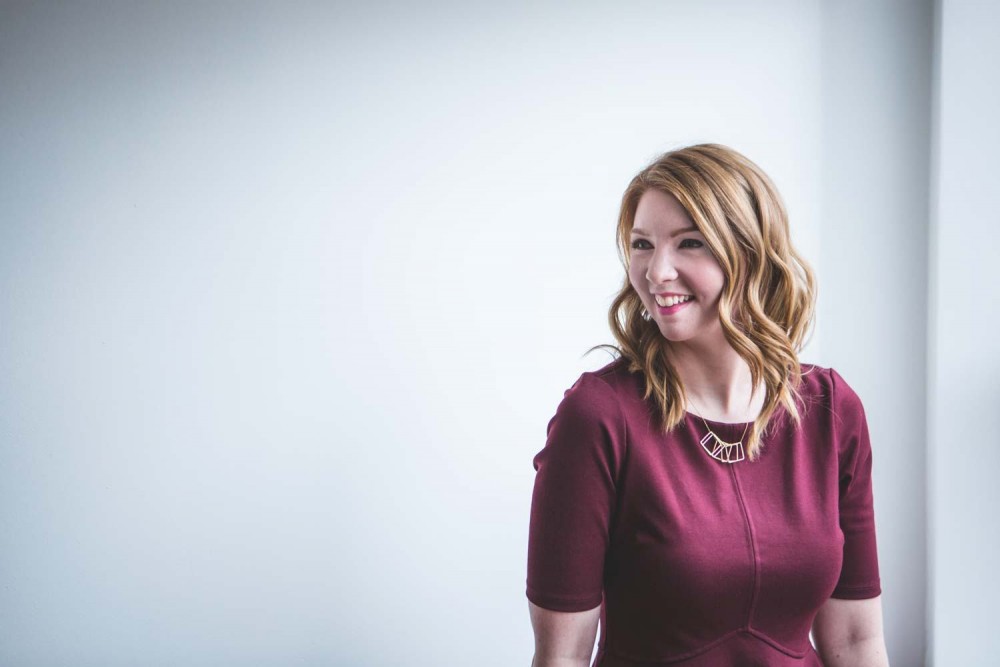Personal Finance is a part of our everyday life, and for whatever reason, it’s something we’ve been conditioned to not talk about. As a result, people end up feeling lost or unsure as they try to make sense of setting a budget, paying off debts, and reaching their financial goals. Jessica Moorhouse is determined to get people talking, learning more, and taking charge of their financial future.
Jessica is a millennial personal finance expert, an award-winning blogger, founder of the Millennial Money Meetup, and the host of the Mo' Money Podcast. From a very young age, Jessica realized that it would take a lot more than being frugal to affordably live the lifestyle she wanted. She learned about strategic budgeting, investments, and remaining accountable for her own personal finance journey. Today she shares this knowledge and provides the financial guidance she so desperately sought after and helps others learn to afford the lifestyle of their dreams.
Why is financial literacy so important for millennials? What about everyone else?
Financial literacy is important for everyone, but I think now is a critical time for millennials because they are young enough to learn how to avoid some very big (and expensive) money mistakes. Not only that, this is the prime time for them to start investing so they can take advantage of compound interest. There’s no better time to get your finances in order and start building up your net worth than in your 20s and 30s.
What are some of the biggest misconceptions people (millennials in particular) have about taking control of their money?
A big misconception is that it takes up too much time. Millennials especially are busy all the time, almost like it’s a virtue to be constantly busy. And because they’re so busy, they may not believe that they have any extra time to dedicate to learning more about the fundamentals of personal finance, or to do things like make a solid debt repayment plan, craft a budget and track their spending. The truth is, it really doesn’t take that much time, especially if you cut out some big time wasters like checking your phone or streaming Netflix. I spend maybe 2-3 hours per month budgeting, tracking my spending and having a money meeting with my husband. I think most people can spare that amount of time to set themselves up for financial success.
What are the biggest financial barriers millennials face today?
I think the two biggest financial barriers millennials face are student debt and low wages. My first job out of university as a sales assistant at a newspaper paid me $30,000 in 2010. It’s now 2017 and that’s still a typical entry-level salary for many industries. And when so many post-grads have $40,000 in student loans to pay off, it can be difficult to start out on the right path. It’s not easy, but that’s definitely why so many millennials are taking financial literacy so seriously and taking up a second job or side hustle to earn more money.
What are some of the biggest positive changes you've seen in personal finance education since you began your work as a personal financial expert?
People are becoming less afraid to ask questions and talk openly about money, and that’s really the best way to learn! Money is becoming less and less of a taboo subject because people, especially millennials, are realizing that if they don’t start talking about it, they’ll never be able to live that life free of debt with the bright future they envisioned growing up.
Which projects are you most proud of and why?
The podcast for sure, because I was terrified that no one would listen or care what I had to say. Luckily it turned out better than I could have ever hoped for. Another project which I started back in September is my Millennial Money Meetup event. I’m hoping to do another in late May, and it’s essentially an event for 80-100 people with a panel discussion from experts about a financial topic that’s close to home for millennials.
You recently reached a milestone in your podcast, and now have over 100 podcasts under your belt. What were the biggest lessons and challenges you faced in building and sustaining this resource?
I know, I can’t believe I’ve already hit 100 episodes! Although it was a lot of work to do, my podcast has been one of the most fulfilling things I’ve done. Not only is it fun to interview authors, experts and other bloggers about personal finance, I really love interviewing listeners of the podcast for my special "Listener Series". It’s a way for people to hear from regular people like them about what to do (and what not to do) with their money. I would say starting the "Listener Series" taught me why I need to continue with the podcast (even though it does take a lot of time and effort). It’s been such a helpful way for me to reach people who don’t necessarily want to read a personal finance blog about RRSPs but do want to listen to someone talk about paying off their mountain of debt while they’re waiting in traffic.
What suggestions do you have for parents who want to raise financially literate children?
Don’t avoid the topic of money because you think your kids are too young to hear it. Include your kids in money conversations so it’s not something new they have to figure out on their own in university or later. Start instilling those good money habits young so they have the right tools when they become adults.
How do you keep yourself educated and up to date on trending financial issues that impact you, your clients, and readers?
I’m always reading what’s going on in the news and seeing what people are talking about and asking on social media. Since I have a thriving audience for my blog and podcast, I speak directly with them and hear about what’s going on in their lives, which is amazing. Sometimes the news only tells half the story, so to learn directly from people who follow me about what they’re struggling with and want to know more about is amazing.
Can you tell me a bit about your decision to move from Vancouver to Toronto and why you chose to make Toronto your home?
My husband and I both grew up in Coquitlam, a suburb of Vancouver, and then moved to Vancouver proper in our early 20s. And then at a certain point, we both felt like we needed a change of scenery. We wanted to know what our lives could become if we lived in a bigger city with more opportunity. So, we decided that after we got married we’d sell all of our belongings and move out east. I hoped it would jump start my marketing career (and it’s done more than that!) and my husband wanted to grow his music engineering career. We’ve been here for almost 4 years and it’s been the best decision we could ever have made.
What is your favourite thing about Toronto?
The people. I’ve met so many amazing people, with different backgrounds and stories, it really makes you feel like the world is bigger than you think. It gets me excited to keep going, taking risks, and pushing myself.
Can you share some of the best advice you have received in your career or in life? What about the worst?
The best advice I’ve gotten career-wise is to not let your failures stop you from trying again. You should learn from your failures, not retreat because of them. I’m way less afraid of taking risks now than I used to be because I started owning my failures, learning from them, then moving on.
The worst advice? Probably to put your head down, work hard and you’ll eventually get noticed and move up the ranks. I’ve worked hard every job I’ve gotten and I’ve never received one promotion. And it wasn’t because I did something wrong, it always had to do with the company’s budget (so a bit of bad luck on my side). Don’t ever stay at a job that doesn’t recognize your talent, skill or effort. Move onto a new, better job where you’re valued instead.
What inspires you?
Other business women paving the way for women like me. I’m a big fan of Sheryl Sandberg and Arlene Dickinson. They are proof that you can be a successful business woman while still staying true to yourself, being classy and genuine, and putting your loved ones first.
What advice would you give to a budding entrepreneur?
Well, on the financial side of things don’t quit your 9 to 5 to start a business before your personal debts are paid off and your emergency fund is topped up. Also, if you want to start a business, start it as a side hustle first to see if it has legs then, when the time is right, go in full force. I’m so glad I didn’t jump into entrepreneurship too soon. It’s not an easy job, so you really need to have a solid plan.
What’s next? Do you have any upcoming projects that you’d like to talk about?
I’ve got two big projects I’ve been working on. The first is my first e-course called "Rich and Fit Bootcamp", all about teaching people how to get financially and physically fit. I’m hoping to have it ready to accept students for a limited time in May as well. The second is, I’m working on becoming an Accredited Financial Counsellor. I’m self-taught when it comes to personal finance, and although I’ve done a few courses, I thought it was time to get some formal credentials to tack onto the end of my name. Once I’m done the program, I hope to offer one-on-one money coaching sessions to help people with their struggles while educating them on how they can take care of their finances themselves, afterwards.
Jessica Moorhouse, a Toronto millennial personal finance expert, shares her knowledge, provides the financial guidance and helps others to afford the lifestyle of their dreams. Connect with her on Facebook, Twitter, Instagram, YouTube & Pinterest and read more about her activities on the website.
SM00LR




